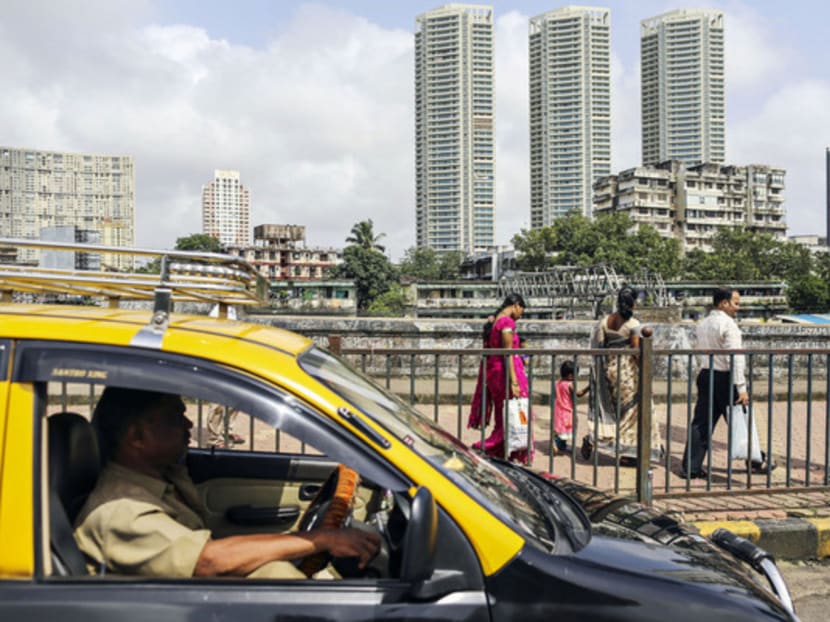S’pore firms must act fast before India’s GST reform bites
India’s new goods and services tax (GST) imposes a uniform levy on the huge and complex domestic market, replacing a slew of taxes applied at both the central and state levels.

The logistics sector is expected to benefit most directly from India’s GST reform. IE Singapore is working with such companies to identify potential logistics hubs and consolidate warehousing in cities such as Mumbai. Photo: Bloomberg
India’s new goods and services tax (GST) imposes a uniform levy on the huge and complex domestic market, replacing a slew of taxes applied at both the central and state levels.
It is an ambitious overhaul of the current tax legislation and is one of the country’s most significant reforms introduced by Prime Minister Narendra Modi.
India’s consumer market is the third largest in Asia and is expected to be the world’s third largest by 2025.
With the GST, India will transform into a uniform market. The lower average tax rate spells good news for Singapore companies planning to do business in India.
Taxes will also be consistent across states, breaking down interstate barriers within India.
Companies no longer need to make decisions based on tax considerations, but rather, on efficiency considerations.
Interstate checks on cargo trucks will also become a thing of the past, and logistics companies will be able to consolidate warehousing in a central location to achieve economies of scale.
Companies will have to adjust to the new system. For instance, smaller set-ups might face slight confusion on whether to charge GST, while in e-commerce, merchants who are not GST compliant will also have to fall in line with the new system.
In general, most companies are coping with the new requirements and many feel that teething issues will be sorted out gradually.
On the positive side, some have seen benefits such as tax credit and cost savings.
Logistics providers now do much less paperwork and interstate checkpoints have been removed.
Those in food services are hopeful that the reduced prices will encourage more people to eat out more frequently.
The implementation of GST will make India more attractive as a market. Along with this, opportunities for Singapore companies will increase.
Such a massive roll-out will not be smooth and problems are to be expected in the short to medium term.
Singapore companies operating in India generally believe that GST will be beneficial though they foresee challenges.
Firstly, they expect higher compliance costs, as companies need to review their accounting practices in line with the new requirements. They now need to file 37 GST returns annually for each state they are operating in, as compared with one previously.
Next, there will be higher operational costs.
The tax on services, including financial services and accounting services, has increased to 18 per cent from 15 per cent to 16 per cent previously.
Finally, there continues to be uncertainty about the exact tax rates as well as compliance with the new invoicing formats. For example, when a company receives an invoice, it needs to make sure the bill follows a set format containing GST-related information, otherwise, the company will not be able to claim GST tax credit for that payment.
A consultant could help to overcome such initial operational challenges.
But overall, the new GST cuts out inefficiencies in the previous indirect tax system in three key areas: Consumer goods, logistics and manufacturing.
The International Monetary Fund estimates that, with the new GST, India’s gross domestic product (GDP) growth rate will rise above 8 per cent in the longer term, compared with its current growth rate hovering around 7 per cent. This is a healthy rate, considering the size of the market.
With a lower average tax and the implementation of the anti-profiteering law, which will pass tax cost savings to consumers, prices would generally be reduced.
Lower prices would encourage more consumption. And with the booming popularity of e-commerce, online marketplaces, such as Flipkart and ShopClues, that are popular in India are listing products from Singapore companies such as Aztech, Creative, Strontium and Nanovue.
The removal of interstate barriers is expected to reduce time taken to transport goods in India.
The new GST also abolishes some taxes such as the Central VAT, lowering logistics costs for manufacturers by 20 per cent to 30 per cent.
As costs tumble and consumption rises, manufacturers will find it more attractive to manufacture in India to capture the massive consumer market.
Singapore manufacturers such as Tong Garden, Hub’s Engineering and Food Empire are looking at ways to set up shop in India.
Finally, the logistics sector is expected to benefit most directly. Transporting materials and components will now be more efficient and cost-effective.
Singapore logistics companies have been showing interest, and International Enterprise (IE) Singapore is working with them to identify potential logistics hubs and consolidate warehousing in states such as Haryana, Maharashtra and Karnataka. IE Singapore is also actively engaging these states to facilitate access for Singapore companies.
For example, an agreement was signed with Gujarat state to provide one-stop assistance to help Singapore companies identify suitable land, facilitate regulatory clearances and advise on applicable incentives.
The Singapore Business Federation also has a similar partnership with Maharashtra to help companies set up operations in the state. Two companies, YCH and Ascendas-Singbridge, also inked agreements with Haryana state authorities to facilitate access.
Indian companies with land or warehousing assets can also act as partners for Singapore companies to scale up their operations quickly.
Global multinationals like Apple, Oppo, IndoSpace and NYK Logistics already see the potential that the GST will bring and are setting up in India.
Singapore companies need to act fast to capture this rising opportunity as well.
ABOUT THE AUTHOR: Tay Lian Chew is group director of North and South Asia Group, International Enterprise (IE) Singapore. He is based in New Delhi.






